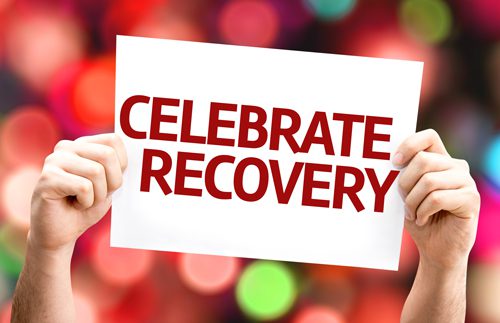Twin Lakes Recovery Center What is Celebrate Recovery?
“Celebrate Recovery is a biblically balanced approach to help bring sustainable recovery and healing to our hurts. It guides us toward new healthy truths and life-giving habits as we repair our broken relationships.”
Celebrate Recovery is a Christ-centered, Bible-based, twelve-step, eight-principle program of recovery that was designed to help people reconnect with God and heal from past hurt and pain. Similar to other twelve-step programs, Celebrate Recovery is an anonymous place to share your experience and struggles and gain hope for your future. It aligns Biblical phrases with the twelve steps of Alcoholics Anonymous.
- First Step: We admitted we were powerless over our addictions and compulsive behaviors, that our lives had become unmanageable. (I know that nothing good lives in me, that is, in my sinful nature. For I have the desire to do what is good, but I cannot carry it out. Romans 7:18)
- Second Step: We came to believe that a power greater than ourselves could restore us to sanity. (For it is God who works in you to will and to act according to his good purpose. Philippians 2:13)
- Third Step: We made a decision to turn our lives and our wills over to the care of God. (Therefore, I urge you, brothers, in view of God’s mercy, to offer your bodies as living sacrifices, holy and pleasing to God—this is your spiritual act of worship. Romans 12:1)
- Fourth Step: We made a searching and fearless moral inventory of ourselves. (Let us examine our ways and test them, and let us return to the Lord. Lamentations 3:40)
- Fifth Step: We admitted to God, to ourselves, and to another human being the exact nature of our wrongs. (Therefore, confess your sins to each other and pray for each other so that you may be healed. James 5:16)
- Sixth Step: We were entirely ready to have God remove all these defects of character. (Humble yourselves before the Lord, and he will lift you up. James 5:16)
- Seventh Step: We humbly asked Him to remove all our shortcomings. (If we confess our sins, he is faithful and will forgive our sins and purify us from all unrighteousness. John 1:19)
- Eighth Step: We made a list of all persons that we had harmed and became willing to make amends to them all. (Do unto others as you would have them do unto you. Luke 6:31)
- Ninth Step: We made direct amends to such people whenever possible, except when to do so would injure them or others. (Therefore, if you are offering your gift at the altar and there remember that your brother has something against you, leave your gift there in front of the altar. First go and be reconciled to your brother; then come and offer your gift. Matthew 5:23-24)
- Tenth Step: We continue to take personal inventory, and when we were wrong, promptly admit it. (So, if you think you are standing firm, be careful that you don’t fall! 1 Corinthians 10:12)
- Eleventh Step: We sought through prayer and meditation to improve our conscious contact with God, praying only for knowledge of His will for us, and a power to carry that out. (Let the word of Christ dwell in you richly. Colossians 3:16)
- Twelfth Step: Having had a spiritual experience as the result of these steps, we try to carry this message to others and practice these principles in all our affairs. (Brothers, if someone is caught in a sin, you who are spiritual should restore them gently. But watch yourself, or you also may be tempted. Galatians 6:1)
Along with the twelve steps, the meetings also follow these eight principles:
Realize I’m not God.
Earnestly believe that God exists and that He has the power to help me recover.
Consciously choose to commit my will to Christ’s care.
Openly examine my faults.
Voluntarily submit to all changes God wants me to make in my life.
Evaluate all of my relationships.
Reserve a time with God daily for self-examination.
Yield myself to God to bring this Good News to others.
The program follows a modified version of the traditional 12 steps and includes eight principles derived from the Beatitudes. These steps and principles guide individuals through the process of acknowledging and surrendering their struggles to God for healing. CR is not limited to only those who suffer with substance abuse and addiction. These steps and principles can be applied to help with a multitude of emotional and psychological struggles, from anxiety and depression to sexual abuse. If you are looking to heal from pain that has been keeping you from living your life as God intended, Celebrate Recovery may be the place for you!
Benefits of Celebrate Recovery Support
- Accountability: Celebrate Recovery encourages participants to have accountability partners within the program. These partnerships offer mutual support, encouragement, and a sense of responsibility, helping individuals stay on track with their recovery goals.
- Teaching and Guidance: Celebrate Recovery meetings include teaching sessions where participants learn about various principles and tools for recovery. This guidance can provide valuable insights and practical strategies for managing struggles and making positive changes.
Celebrate Recovery Support Groups
Celebrate Recovery meetings typically involve small group discussions where participants share their experiences, challenges, and successes. The emphasis is on creating a supportive and non-judgmental community. Find a Celebrate Recovery Meeting.




